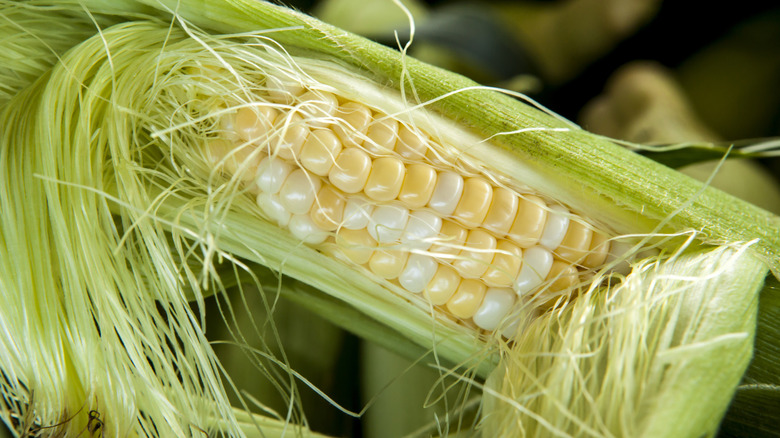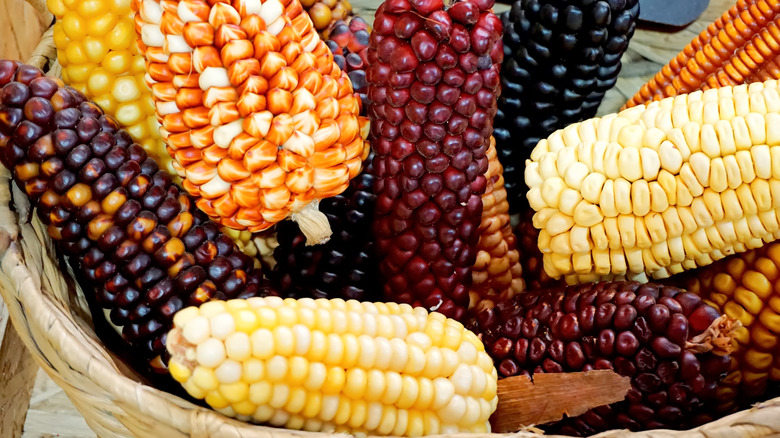How To Buy The Best Corn For Grilling Without Seeing Past The Husk
Any cob of corn you purchase for grilling must fulfill a handful of requirements to get a beautiful char without burning it. It needs to be juicy, firm, free of parasites, and have clean husks. Luckily, corn is one of the easiest forms of fresh produce to judge in the supermarket, provided you know what to look for.
A basic grilled corn recipe requires the cobs to have enough moisture to prevent burning when exposed to high radiant heat. You can easily determine how juicy a cob is by examining its tassels, the strips of corn silk peeking out of the husks, and the husks themselves. Sticky, slightly sweet tassels mean there's plenty of moisture within the kernels and bright green husks that firmly hug the cob are an indicator of its freshness. Closely examine the area where the tassels peek out of the husk for small holes or tears. These are often indicators that parasites have been sacking on your corn, so its kernels may be compromised and exposed to air.
Give your cob a final squeeze test to evaluate its firmness. If it feels squishy or like it might have missing kernels, you should discard it. High-quality corn should have no problem standing up to a bit of pressure and have all of its kernels intact.
What kinds of corn are best to grill
There are four main types of corn: sweet, flint, popcorn, and dent corn. Each type has its respective strengths and uses, but not all are well-suited to grilling.
Sweet corn is invariably the best corn for grilling. In its fresh, juvenile stage, its kernels secrete a milky white substance that, when punctured, is full of sugar. Its high moisture content, great flavor, and wide availability makes it one of the most popular types in the world. Even the most mediocre cobs can be made sweeter by grilling them within their own husks as they contain trace amounts of the plant's natural sugars.
Flint, or heirloom, corn has less sugar than sweet, but it makes up for it with a richer, earthier flavor, provided you can get it fresh and not dried. One thing you may not know about heirloom corn is that popcorn is actually a subspecies of it despite being considered a separate type. However, popcorn is a poor choice for grilling because the exterior of each kernel is quite hard. But, popcorn is still better than dent corn which is the variety most commonly grown to later be ground into corn flour products or livestock feed. This type is simply too dry and flavorless to make for good grilled corn.


